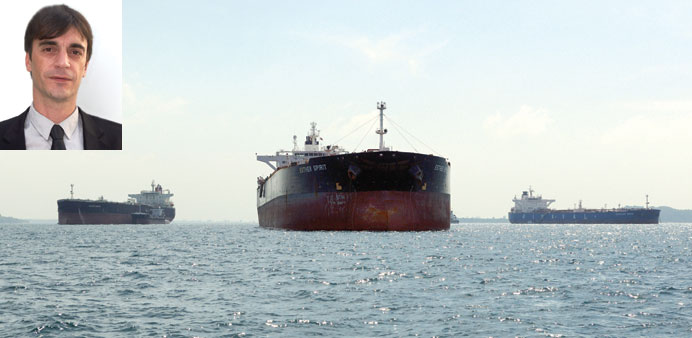As the GCC-Singapore Free Trade Agreement (GSFTA) came into force on September 1, 2013, Gulf companies and especially Qatari investors are expected to flock to the small Southeast Asian city state that is strategically located within Southeast Asia.
First of all, the trade agreement will push oil and gas trade between the Gulf and Southeast Asia via Singapore. Already one of the most important transit points in the global energy trade, Singapore will see an even higher percentage of the oil and gas pass its coastline over the next couple of decades as the centre of global energy demand shifts toward Asia from the US, and Singapore has already been made a hub for Qatari gas export to the region whose volume is expected to surge as Qatar is seeking to shift its gas trade away from conventional channels to the West.
Furthermore, the Malacca Strait between Malacca and Singapore is expected to carry as much as 45% of global crude trade by 2035, according to the International Energy Agency, or 16.5mn bpd, up from 12mn bpd in 2012. The strait connects the Indian Ocean to the South China Sea and Pacific Ocean and is the shortest sea route between major oil and gas producers in the Arabian Gulf and the fast-growing Asia-Pacific market.
It is obvious that this opens not only tremendous opportunities in oil and gas trade, but also in investments into Singapore’s ports and refineries that are eager to cement their leading position against other upcoming Asian oil and gas trading hub such as ports in Malaysia or China’s southern cost including Shanghai.
Apart from the hydrocarbon trade, Singapore with its highly developed industry and skilled workforce opens a number of other opportunities in areas such as telecommunications, electrical and electronic equipment, jewellery, machinery and iron and steel-related industries such as shipbuilding, as well as infrastructure, in which Qatari and Singaporean businesses can easily establish and enhance co-operation. In the free trade agreement, the GCC has also committed to recognising the Singapore MUIS Halal Standards as similar and consistent to their own domestic halal standards, indicating potential in halal food and services trade.
The GSFTA is a role model for trade relations between the Gulf countries and the Association of Southeast Asian Nation, or Asean. Singapore is the first non-Middle East country to have a free trade agreement with the GCC (Gulf Co-operation Council), and this will bring the economic relations between the GCC not only with the city state, but with the entire region to a new level.
Are you expanding your business to Southeast Asia? Would you choose Singapore as an entry point? Let us know your experience through Twitter: @insideinvestor using hashtag #gulftimes.
Our columnist Dr Arno Maierbrugger is Editor-in-Chief of www.investvine.com, a news portal owned by Inside Investor focusing on Southeast Asian economic topics as well as trade and investment relations between Asean and the GCC. The views expressed are his own.

